Experience the 31 Best Classes & Workshops in Tokyo, Japan
There is no better way to experience traditional and modern Japanese culture than to immerse yourself in some of the best classes and workshops Tokyo city has to offer. From Kintsugi pottery and Kyudo Archery to Ninja training and Manga drawing, this list will make you experience Japan in a way you never have before.
1.Amezaiku Candy Bending magic
Indulge in the world of candy art, also known as Amezaiku, where sugar, fire, and artistry meet. This candy bending craft is regarded as a form of art, which consists of shaping sticky, sugary water into pandas, dragons, fish, cats, frogs - or anything really. In this workshop, you’ll get to learn this intricate skill using only a pair of tweezers and scissors, and by pulling, stretching, and molding, you’ll get to turn a ball of candy into a little rabbit, and decorate it with food coloring.
Languages: Japanese, English(some instructions are available in english during the workshop)
Price range: Adults: ¥3,000 (28.43$), Children [age 6 to 11]: ¥2500 (23.69$).Workshop duration: 30 minutes to 2 hours.
Opening time: 10:30 am till 6:00 pm. Closed on Thursday.
Instagram: Founder: @shinri_tezuka
Official website: www.ame-shin.com + You can also book via Airbnb here.
Contact: ameshin002@gmail.com
Additional information: A selection of candy can also be bought at the workshop location and varies from ¥600 to ¥3000, otherwise the majority are sold at this location in their Tokyo Skytree Town Solamachi Store. +Use this link to get up to 34$ off your first airbnb booking or experience: 34$off.
2.KINTSUGI: the art of scars
Kintsugi, or golden joinery, is a Japanese art form which consists of repairing broken pottery using gold to mend together the shattered pieces. The philosophy asserted by this process treats breakage and repair as normal processes of life. Significantly, the gold emphasis on scars beautifies and celebrates this process as the new is worth more than the old. Very few real practitioners of Kintsugi are alive today. Still, Showzi Tsukamoto is one of them; in his intimate workshop, you will get to have a one of a kind experience and learn the in-depth details and history of this art form and get to practice it. A tea ceremony will follow this where discussion of the common philosophy of kintsugi, samurai, and tea will take place.
Languages: English, Japanese.
Price range: ¥30 970 (293$)Capacity: Hosts up to 6 people.
Workshop duration: 4 hours
Opening time: Dates vary. From 1 pm till 5pm.
Instagram: @kintsugi.showzi
Official website: kintsugitsukamoto.wixsite.com Bookings on Airbnb here.
Contact: This Form.
Additional information: At the end of the session you'll be taking home your own Kintsugi ceramic cup, decorated with 24-karat gold. This is worth about 100 usd or 10,000 JPY. +Use this link to get up to 34$ off your first airbnb booking or experience: 34$off.
3.ORIGAMI folding and wish granting
Origami, literary paper folding, got introduced to Japan in entertainment and cultural events, as they served as decoration during Shinto weddings or as ceremonial gifts different rituals. One ancient Japanese folk tale even promised that the gods would grant a wish to anyone who folds one thousand origami cranes. Although we can’t personally make any guarantees, you can learn to fold these delicate creations at Ochanomizu Origami Kaikan, where you can join workshops with local artisans to create something new - and perhaps get a wish granted or two.
Languages: The majority of workshops are offered in Japanese, there is one beginner lesson provided in English, but you can also specifically request an English-speaking instructor (through phone or email) if you want to take another workshop.
Price range: ¥1000 (9.48$) to ¥3000 (28.43$) for one to two hours, depending on the complexity of that day's design
Workshop duration: Usually, 2 hours.
Opening time: 9:30 am till 5:30 pm. Closed on Sundays.
Instagram: @ochanomizu_origamikaikan + Geotag location
Official website: [You can translate the website using your browser's extension] Link to Beginner English classes: here. Link to all levels: here.
Contact: +81-03-3811-4025
Additional information: 1]There is a Paper-dyeing Studio on the 4th floor of their buildings: Japanese paper is still dyed sheet by sheet by the dyers there. You can freely visit the studio while the dyers are working during business hours but can't if the door is closed. 2]The store is owned by Kazio Kobayashi (who also gives workshops there sometimes), a renowned origami master.
4.VITALIZING Wadaiko drums WORKSHOP
Wadaiko is a Japanese percussion instrument whose sound resembles the sudden rumbling of thunder. Originally used as a battlefield instrument to energize warriors and communicate between distant troupes, its primary function is now in festivals and dramatic stage performances. Apart from its musical dimensions, Wadaiko consists of sports elements as wielding its wooden sticks (Bachi) and using them to persecute the drums necessitates ample energy. During your lesson, after changing into your traditional Japanese happi coat, you will be taught detailed techniques such as how to correctly hold the Bachi and posture yourself when striking the drum. This workshop is sure to infuse you with energy and excitement, as this is a very electrifying instrument. Don’t worry if you feel like you won’t be able to satisfy your ears with your performance: your instructor will execute one that is sure to shake the grounds on which you’re standing.
Languages: English, Japanese.
Price range: ¥10 000 ~8000 ~ 6000 (94.97~75.97 ~ 56.98$) Price is dependent on low or high season demand.
Capacity: Hosts up to 8 or 15 people depending on studio.
Workshop duration: 1 hour
Opening time: 9:30am till 10pm on weekdays, 9:30 am till 6pm on weekends.
Instagram: N/A
Official website: www.taiko-reserve.com
Contact: +81-75-813-8615 + class@taiko-center.co.jp
Additional information: if no group sessions are available, contact them to ask for a private session.
5.FUSE ANIME AND FOOD INTO A BENTO
What’s better than good food? Food that looks good. If you didn’t know, bento is a style of home-packed meal usually stored in a box, typical in many different Asian countries. You will learn how to make the cutest bento boxes geared towards any ages at this cooking studio. Whether you want to recreate your favorite anime characters or a teddy bear lunch for your children (or yourself), this is your go-to workshop. Yoshie-sensai, an award-winning instructor, will teach you all the skills you need to know, whether you’re a beginner or an advanced cook, and have you screaming ‘Kawaii’ at your delicious edible creations. [Vegetarian options are available].
Languages: English or Japanese.
Price range: ¥5000 (47.38$)Capacity: Hosts up to 4 guests.
Workshop duration: 2.5 hours.
Opening time: 11:00 am till 1:30 pm, Everyday
Instagram: N/A
Booking website: airkitchen.me
Additional information: As her reservations are often fully booked, here are some other options: ‘Cute character bento made by friends for group’ which is created by the same instructor for larger classes, or this link for other instructors.
6.ROGATA JEWELRY making class
Rogata, or lost-wax casting, is a technique that allows you to create any shape. By first designing it in wax, surrounding the wax with casting material, melting it off to allow your design's body to be molded into the casting material, and then filling it this mold with your choice of metal to create your final piece. Atelier Shinji in Ginza offers a jewelry-making workshop using this process of Rogata, which will enable you to make any custom piece of jewelry of your liking, hands-on, in only a few hours. They will cast and do the finishing of your work themselves, which will be ready for pick up or post the week after your class.
Languages: English, Japanese.
Price range: ¥30,000 + tax per person (284.76$)Capacity: Dependent on need.
Workshop duration: 5 hours
Opening time: Every week, Wednesday from 11.00 am to 4 pm
Instagram: @atelier_shinji_ginza
Official website: ateliershinji.com
Contact: +81-(0)3-5565-5950 + hello@ateliershinji.com
Additional information: There are other jewelry class offered in Tokyo but you usually need to take more than 1 lesson to complete them. You can check these ones out by Aoyama School of Jewelry and Metalsmithing.
7.TRAIN LIKE A SAMURAI
Time to sharpen your sword, warrior, as this course will teach you Samurai ancient fighting techniques. At this training class in Tokyo, you will learn about these legendary warriors and get to walk in their shoes - and traditional kimonos. Taking place in the conventional setting of a dojo, the art of Kembu (sword dance) using a katana (traditional sword) will be taught as well as customary samurai bowing. In addition to this Japan-only experience, you’ll get to go home with memorable photos and a certificate attesting to your samurai-ness.
Languages: English and Japanese.
Price range: ¥9980 (94.54$)Capacity: Hosts up to 10 people per session
Workshop duration: 1 hour, might get extended to 90 minutes.
Opening time: 10 am till 5 pm.
Instagram: N/A
Official website: tokyo-samurai.com
Contact: +81-3-5770-5131 - tic-tokyo@his-world.com
8.neon light photography MASTERCLASS
If you think about Tokyo, you’ll probably eventually think about its beautiful neon light signs scattered throughout most of its streets. And if you’re anything like me, you probably wonder how photographers shoot their beautiful neon-lit photography in this city. EYExplore, a photography tour company, offers you just the answer to that question in the form of photography lessons during tour guides. With them, you’ll get the chance to take pictures of some of Tokyo’s most beautiful back alleys, streets, crossings, and metropolis areas, and all basked in the light of neons and their trails and vibrancy. They cater to all levels, so don’t worry if you’re a total photography beginner.
Languages: English and Japanese.
Price range: ¥9,900 (93.69$)Capacity: Hosts up to 6 people.
Workshop duration: 2.5 hours
Opening time: Start at 7 pm, everyday except on Sundays.
Instagram: @eyexplor
Official website: www.eyexplore.com
Contact: +81-3-4405-7950 - info@eyexplore.com
Additional information: Cameras are not provided, you can ask them for rental services recommendations, and tripod rentals. In case the night scene isn’t your thing, they also provide other photography tours.
9.Ukiyo-e WOODBLOCK Printing
Ukiyo-e (Floating world), or woodblock printing, is a prevalent historical Japanese art form. The technique to craft a final piece follows specific steps: first, a design is drawn using ink, then a carver carves out the black outline of the plan on a cherry wood plate, followed by the carving of different vessels for the different color patterns present on the design. The printing process can then begin as the paper is set on each subsequent block to gain first an outline and then color. Mokuhankan printing studio enjoys the process so much that they created ‘print parties’ styled workshops where you’ll get to enjoy the very hands-on activities of the woodblock printing process and the various techniques to produce them without the hassle of making your woodblocks. You’ll get to go home with your own creation and newfound knowledge - or even buy one of their prints.
Languages: English and Japanese.
Price range: One person: ¥2000, additional people ¥1500Workshop duration: 2.5 hours
Opening time: Check availability upon booking [Varies]
Instagram: @mokuhankan
Official website: mokuhankan.com
Contact: here.
Additional information: ‘‘Part way through the session, the printing paper will need re-moistening, and that'll be your time for a coffee/tea break (complimentary), along with some nice Japanese snacks’’
10.traditional japanese sweets making class
Sweets play a significant role in Japanese culture. They symbolically represent the changing of seasons: sakura-mochis during spring, chestnuts-filled sweets in autumn, or azuki-beans during the summer. Meet Miyuku, your certified instructor in nerikiri art. Learn the art of making your favorite Japanese sweets and enjoy them in the comfort of her home. With her guidance, you will learn to make three different sweets: mochi (otherwise known as the sweets of my dreams), Dango (chewy, tender spheres of heaven), and nerikiri (edible pieces of art). The all-vegan menu makes it a perfect experience for anyone with a sweet tooth. To wrap it all up, you will be taught how to make your own bowl of matcha green tea to enjoy with all the treats you made, as this is a tradition when enjoying wagashi (literally Japanese confections).
Languages: English and Japanese.
Price range: ¥7000 (66.48$)Capacity: Hosts up to 6 people.
Workshop duration: 2.5 hours
Opening time: Classes begin at 10 am, 3 pm and 11 pm.
Instagram: @simply_oishii
Official website: www.simplyoishii.com
Contact: Contact form.
Additional information: Note that sometimes the course does not include the dango (she sometimes updates the coursework) , be sure to ask her, and here is another option which does include all 3 confections just in case (same instructor but different hosting site).
11.Experience Japanese Glassblowing
Japanese people are known for their pottery, wood prints, and ceramics, so it may surprise that glass arts also play an essential role in their art scene. Glassblowing involves the inflation of liquified glass under high temperature, into a mold of your choice using special breathing techniques. At the ‘Attractive Japan’ glassblowing workshop, you will learn how to make glass souvenirs of your size, shape, and color of choice under the supervision of professional instructors from Tokyo Glass Art Institute who will help you every step of the way.
Languages: English and Japanese.
Price range: ¥3840 (36.33$)Capacity: Hosts up to 6 people.
Workshop duration: 45 minutes
Opening time: 10 am till 5 pm
Instagram: @tokyo_glass_art_institute
Official website: www.viator.com
12.wishing Food Samples were edible
If you’ve ever been to a fast-food restaurant, you know the difference between the ads and what you actually get. But if you’ve been to a Japanese restaurant, chances are you couldn’t even tell the difference between the displayed plastic food sample and the edible one. Food models have been in Japanese restaurants since 1917 and served as a way to show customers what they could get before colored photography was common. At Ganso Shokuhin Sample-ya, one of the field pioneers, you will learn how to make these artificial food samples using wax. The store also offers different products such as premade wax samples and food sample kits to make at home if you don’t want to dedicate time to this class. From wax vegetables to ramen dishes and ice creams (plastic yum!!), Ganso Shokuhin Sample-ya offers a wide variety of products you can buy or make to your eye’s delights.
Languages: English and Japanese.
Price range: ¥3840 (36.33$)Capacity: Hosts up to 20 people.
Workshop duration: N/A
Opening time: 10 am till 5:30 pm.
Instagram: @replicafoods_gallery_asakusa
Official website: www.ganso-sample.com
Contact: +81-3-4405-7950
Additional information: Here is an alternative workshop which provides the same experience: Food replica workshop.
13.BECOME A SUMO WRESTLER FOR A DAY
Ever wondered how Sumo wrestlers get so big? Your question can be answered while you fight and dine like one at this sumo ring. Watch professional sumo wrestlers battle and even get to have a hands-on experience and learn some of their critical moves as you have a go at wrestling with one of them. After the lesson, you’ll get to enjoy tasty Chanko Nabe - a traditional sumo fighter hotpot- and other Japanese specialties. Overall, this class will cover the history, training, and rules of sumo fights. Once you’re done, you’ll walk out with unforgettable memories in your mind and tasty food in your stomach.
Languages: English and Japanese.
Price range: ¥14800 (140$)Capacity: Hosts up to 15 people.
Workshop duration: 2 hours
Opening time: Mondays and Thursdays, hours vary by season.
Instagram: N/A
Official website: www.viator.com
Location: Monday: The location will be Asakusa Chanko-ba. Thursday: The location will be Yukidaruma Ryogoku-beya.
14.KYUDO ARCHERY AS A MARTIAL ART
Kyudo, or ‘the way of the bow,’ is a form of Japanese archery, dating from pre-historical times (c. 500 BC – 300 AD). Kyudou was a part of samurai education and often taught in schools, as it constituted an essential part of martial art in wars. After introducing gunfire to Japan, Kyudou diminished in popularity but is still practiced as a ceremonial skill and philosophy as it follows a spiritual training. Here the experience will consist of changing into a traditional Hakama (Kyudou costume), learning about the basics and history of this art form, and hands-on practice and basic training in manners to shoot at a target - short distance and long-distance.
Languages: English, Japanese.
Price range: ¥12 431 (118$)Capacity: Hosts up to 8 people.
Workshop duration: 3 hours
Opening time: Hours vary
Instagram: N/A
Official website: www.airbnb.com
Additional information: This is worth about 100 usd or 10,000 JPY. +Use this link to get up to 34$ off your first airbnb booking or experience: 34$off.
15.SPECIAL SUSHI cooking class
What’s Japan without some sushi? At the famous Tsukiji Fish Market, you’ll get to learn the stories of fish and how they make their way from the sea to the kitchen and into your growling stomach. A lot of sushi classes and workshops are offered in Tokyo, but the one in this location is probably the most epic: tour the world’s largest seafood market with a full-fledged fish connaisseur, learn how they’re made with a sushi master, paying particular attention to nigiri sushi, and finally grace yourself with the gift that keeps on giving: eating.
Languages: English and Japanese.
Price range: ¥14370 (136$)Capacity: Hosts up to 8 people.
Workshop duration: 4 hours
Opening time: 8:30 am. Closed on Sundays.
Instagram: Geotag.
Official website: www.viator.com
16.manga DRAWING LESSONS WITH A MANGAKA
Whether you’re a professional artist or a complete newbie, take a shot at Manga School with Nakano - a real-life professional manga artist. She’ll teach you how to use different tools and techniques that come into play when going through all manga drawing steps: from sketching and inking to painting and highlighting. You’ll get to learn about drawing faces and body structures as well as various types of drawing and cut-out styles and end up with your very own uniquely designed manga character.
Languages: English and Japanese. (other arrangements can be made for people of different nationalities)
Price range: ¥9230 (87.28$)
Capacity: Hosts up to 8 people.
Workshop duration: 3 hours.
Opening time: Timing varies. Closed on Saturdays and Sundays.
Instagram: N/A
Official website: www.viator.com
17.learn ninja techniques in a traditional dojo
Ninjas - also known as Shinobis - have played an intricate role in Japan's feudal history. From espionage to surprise attacks and deception, where Samurais were deemed noble, worthy warriors, ninjas were often regarded as a disgrace but have played a central role in old Japan's politics and socioeconomics powers. Although not as epic as real-life ninjas, this weird Ninja-Samurai class will bring you close to the experience. It provides you with teachings about a culture that has been kept secret for long from teachers whose families have ancestors belonging to real ninja clans. In class, you will learn how Ninjas meditated and fought, with an introduction to their weapons and fighting - which you will get to practice in their dojo. Go home with plenty of memories, photos, and a certificate to remember this genuinely unique Tokyo experience.
Languages: English and Japanese.
Price range: ¥6000 (56.78$)Capacity: Hosts up to 6 people. If you are a bigger group, send them an email.
Workshop duration: 45 minutes
Opening time: 10 am till 7 pm
Instagram: @ninjasamuraidojo_asakusa + Geotag
Official website: www.ninjasamurai.tokyo
Contact: booking@ninjadojo.jp + +81080-4025-2020
Additional information: Other options available: here.
18.LISTEN TO THE SOUND OF WIND CHIMES
In old Japan, strong wind blows were believed to bring with them diseases, so it became customary for Futaku (wind chimes) to be hanged in certain places to alert people of these epidemics. Nowadays, wind chimes are more symbolic of the arrival of summer breezes, as the soothing sounds of their clapper resonating on their bowl-shaped glass interior bring with it soothing harmonious sounds. The traditional Futaku is considered a hard object to craft. Still, with the help and guidance of Shinohara Maruyoshi Furin, you will learn how to glass blow and paint traditional Japanese wind chimes of the Edo period in a heartbeat - or two or three, but you’ll get there eventually.
Languages: Japanese with a little English.
Price range: ¥1700 (16.09$)Capacity: Hosts up to 20 people
Workshop duration: 1 hour
Opening time: 10:30 am till 6 pm. Closed on Mondays. Opens till 5pm on Sundays.
Instagram: Geotag
Official website: [You can translate the website using your browser’s extension] www.sam.hi-ho.ne.jp
Contact: +81 3-3832-0227
Additional information: This is a family-owned business and the website is quite old, so perhaps calling or going in-store to directly inquire about the lesson would be more efficient.
19.HAND-MADE WASHI PAPER ATELIER
Origami, Calligraphy, and even office work all have one thing in common: paper. In Japan, a more traditional type of paper called Washi paper is used in numerous conventional settings and arts such as Origami, Ukiyo-e Calligraphy, and special book mendings. This particular paper is more rigid than western paper and is made out of wood pulp fibers. At this Washi making workshop in Hinode, Western Tokyo, you will learn how to make Washi using traditional methods, from tree bark to paper. After making it, you will have the chance to dye your sheets and create beautiful prints to take home with you.
Languages: English, Japanese
Price range: ¥10 000 (94.61$)Capacity: Hosts up to 5 people.
Workshop duration: 5.5 hours
Opening time: 10 am till 4 pm. Closed on Tuesdays.
Instagram: N/A
Official website: www.govoyagin.com
Additional information: If you want a similar experience (but only 1.5 hour long and not as in-depth), check this one out in central Tokyo: Here.
20.learn how to host your own tea ceremony
Tea ceremonies are embedded in Japanese culture and are part of a hospitality tradition that goes back to the 9th century. Tea ceremony courses in Japan are long and intensive. Still, you can enjoy a dialed down version of it in Tokyo at Chado School, where Mika Soka Haneishi has been practicing Chado (tea ceremony) for 23 years. In this workshop, you will learn the concept behind tea ceremonies and the rules of hosting and get a hands-on experience at preparing matcha tea in a standard tearoom setting with tatami flooring.
Languages: English, Japanese
Price range: ¥4390 (41.51$)Capacity: Hosts up to 8 people.
Workshop duration: 90 minutes.
Opening time: 10 am till 4 pm. Closed on Sundays and Mondays.
Instagram: N/A
Official website: www.viator.com
Additional information: Please note that finding good tea ceremony workshops that don’t take several days is rather rare. There are other tea ceremonies that offer kimonos during their workshops but they aren’t as good. So if you want to wear a kimono, make sure to rent one yourself beforehand.
21.SASHIMONO CARPENTRY WOODWORK
Edo Sashimono is a type of wood craftsmanship consisting of the precise joining of wood with no use of nails whatsoever -or as little as possible. This woodwork is characterized by a lack of ornamentation and preference for simplicity in the use of techniques that naturally bring out the wood grain's beauty. Forget about nails, screws, glue, or modern tools. In this workshop, you will learn about Edo Sashimono and make your exceptionally handcrafted wood pencil case by cutting, planning, sealing, and carving.
Languages: Japanese, English.
Price range: ¥29 500 (280$)Capacity: Hosts up to 6 people.
Workshop duration: 2 hours.
Opening time: Weekdays, from 10am till 3pm. Closed on weekends.
Instagram: @deeper_japan
Official website: deeperjapan.com
22.SUMI-E ink painting & nature stroll
Sumi means ink, and ‘e,’ painting, so Sumi-e is essentially ink painting in Japanese. It uses a diverse array of gradation, staining, blurring, bleeding, and shading techniques, basing itself on a mixture of ink and water to finally gave way to a final product - usually inspired by nature. In the Sumi-e class recommended on this list, Reiho-san will first walk you through her neighborhood, passing by Kinuta Park - famous for its cherry blossom trees- as a way for you to get inspired by its seasonal features. You will then get to experience Sumi-e in her studio, learning how to draw, paint, and maneuver the ink in both the traditional monochrome way, but also using newer, vibrant color schemes. She will teach you how to break down the piece you want to draw into this style. Since this is a lengthy process, you’ll also get rewarded with Japanese tea and traditional sweets at the end of the session.
Languages: English, Japanese.
Price range: ¥5 690 (54$)Capacity: Hosts up to 3 people.
Workshop duration: 4 hour
Opening time: Timing varies.
Instagram: N/A
Official website: www.airbnb.com
Additional information: A similar experience which can host up to 6 people can be found here. +Use this link to get up to 34$ off your first airbnb booking or experience: 34$off.
23.WEAVING EXPERIENCE
Weaving has played an integral part in any culture that gave great importance to elegant and captivating clothing and fabric. This textile production method consists of the interlacing of threads at different angles to finally produce the desired cloth. In this workshop, you’ll be taken to tour an Atelier in Tokyo where you will get to witness, learn and practice traditional Japanese weaving methods. Since clothing takes too long to produce, you can choose smaller pieces such as coasters, placemats, or central pieces, and design them from start to finish, choosing your fabric, thread style, and weaving method.
Languages: English, Japanese.
Price range: ¥3480 (33.05$)Capacity: Hosts up to 8 people.
Workshop duration: 2 hours
Opening time: 10 am to 7 pm. Closed on Wednesdays.
Instagram: @wanariya.2012
Official website: www.govoyagin.com
Additional information: This experience can also be booked through the studio’s website, and they also offer a dyeing atelier if you’re interested.
24.the way of the brush: JAPANESE CALLIGRAPHY
Fortunately, you don’t need to know how to write Japanese to try your hand at Japanese calligraphy (Shodo). At Tokyo Calligraphy Class, you will learn from Tokyo’s Shodo master Kaneko Youshun, a rare qualified calligraphy expert in Tokyo. At the start of the lesson, you will learn the following: basic techniques of ink grinding, the correct way of holding your brush or pen, as well as the amount of pressure applied, which results in different brush strokes and proper ways to draw on your canvas - all this while being served Green tea and traditional sweets. The class time can be extended as you’ll get to practice for as long as you want before you end up with your finished product. But if you somehow end up spending less time practicing, you’ll also get to learn how to carve a traditional Japanese seal stamp.
Languages: English, Japanese
Price range: ¥6000 (56.80$). Group discounts available for more than 4 people.Capacity: Hosts up to 6 people.
Workshop duration: minimum of ~1.5 hour
Opening time: Time is dependent on you. Classes are available on Mondays, Wednesdays, Saturdays and Sundays,
Instagram: @tokyo.calligraphy.class
Official website: www.tokyocalligraphyclass.com
Contact: tokyo.calligraphy.class@gmail.com
25.TRADITIONAL POTTERY making
Pottery in Japan originally developed with Chinese, Korean, German, and Spanish influences. Like many other things in Japanese culture, it grew its originality, from the concepts related to tea ceremonies and Zen's idea. Pottery in Japan broadly centers around the concept of Wabi - austere beauty - and Sabi - elegance. At Saideigama studio, you can choose from different pottery techniques, from the modern electric wheel, known as the Baibiki technique, the more traditional hand steered wheel or Himozukuri, or even the very hand-son slab building Itzakuri technique. Typically, students will get to create Macha teacups or long plates, but you can opt for your chosen design.
Languages: English, Japanese.
Price range: Vary on design, from ¥6 000 ~ 20 000 (56.98~189.93$)Capacity: Hosts up to 20 people.
Workshop duration: 1 hours
Opening time: MWF from 10 am till 9pm, TTSS from 10 am till 6 pm
Instagram: @saideigama
Official website: saideigama.com
Contact: +8150-3411-1929 + DM them through instagram + info@saideigama.com
26.forget about sushi for a second
Let’s talk about food (again): at Yuca’s cooking class, you’ll get to learn how to make Ramen, Gyoza, Okonomiyaki, or any other Japanese dish of your choice. Tour the Tokyo market and head on to her spacious kitchen where everything you make is from scratch. Carnivores, omnivores, vegetarians, and vegans, her cooking class has something delicious to suit all of you and bring forth diet world peace.
Languages: English, Japanese
Price range: Staring ¥9 900 (93.71$) to ¥35 000 (331$) depending on chosen in-person class.Capacity: Hosts up to 7 people.
Workshop duration: Depends on class.
Opening time: Time is dependent on you.
Instagram: @yucasjapanesecooking
Official website: yjc.tokyo
Contact: Contact form here.
Additional information: if you’re looking for a more ‘traditional’ experience, check this one out.
27.Edo Style Glass Cutting
Half empty or half full? That's totally up to you, but how about you think of that with a glass you've designed yourself. Edo Kiriko is the Japanese art of glass cutting, distinguished through its extensive thin colorings through hue saturation and intricate glass details. At Sumida Edo Kiriko Kan, you can try your hand at glass cutting with field professionals' help and get insights on the history and development of this method.
Languages: English, Japanese, Chinese.
Price range: ¥4,320 (40.94$)Capacity: Hosts up to 3 people.
Workshop duration: 1.5 hours
Opening time: 10 am till 6 pm. Closed on Sundays.
Instagram: @sumida_edokirikokan
Official website: [You can translate the website using your browser’s extension] www.edokiriko.net
Contact: +81-3-3623-4148 - Contact form.
28.KATANA SWORD MAKING FORGING MASTER
You’ve probably heard of the Katana and its standing as a deadly samurai weapon, but what you may not know of is its status as a talisman or amulets for protection against physical and spiritual enemies. So now you might understand why some of these swords are often found hanging on the walls of individual homes and establishments: they are used as safeguards against foes. You can learn about the history and ideology behind this sword and other ones with a craftsman: Fusahiro Shimojima, one of the world’s last samurai swordsmith. The practice takes years of apprenticeships to master and is in decline. In his workshop, you will get to witness him forge his blade from Tamahagane, steel with different layers of carbon, and watch him as he heats, softens, and folds the steel to give birth to the Katana’s signature curve. Don’t worry; he will also teach you how to forge the iron yourself with a hammer and yield this beautiful piece of art.
Languages: English, Japanese.
Price range: ¥48 570 (460$)
Capacity: Hosts up to 15 people.
Workshop duration: 3 hours
Opening time: Everyday from 1:30pm till 4:30 pm
Instagram: N/A
Official website: deeperjapan.com
Contact: +81 (90) 4533 3732 + info@deeperjapan.com
29.create SOAP crystals and popsicles
Although soap making isn't specifically embedded in Japanese culture, and the soap making workshop we're recommending isn't particularly cultural, it's still quite a fun and memorable experience. The concept of design soap is still relatively new in Tokyo, but Akihabara's unique shop offers this class. You can choose from various soaps: from jewels that resemble a light-refracting crystal, popsicles that look so tasty, you might accidentally try to taste them, or the good old traditional rectangular ones used for bathing. You'll get to customize whichever one you choose, from how it looks to how it smells, by choosing from their selection of over 50 scents of essential oils and colors. Your finish product will not only look and smell great but will also be nourishing to your skin.
Languages: English, Japanese.
Price range: ¥5 500 (52.19$) for the normal soap bar and crystal soap bar, ¥4 500 for the popsicle soapCapacity: Hosts up to 30 people.
Workshop duration: 2 hours
Opening time: 10 am to 5 pm. Closed on Sundays.
Instagram: @jdsa__official
Official website: Crystals + Rectangle bar + Popsicle
Contact: info@jdsa-jp.com
Additional Information: If you’re interested in soap making but are looking for traditional Japanese soap making techniques in a workshop, check this one out.
30.Nihonga painting
Nihonga means ‘Japanese painting.’ From this definition, one could deduct that any paintings that originate from Japan or Japanese artists are hence ‘Nihonga.’ Still, the designation is more complicated: the distinction between Western-style images and Nihonga ones are based on the difference in painting materials used. From the foundation of washi paper, silk, wood or plaster, to the use of Sumi ink, or Gofun shell pigment to the use of Nikawa, an animal glue used to incorporate gold, leaf, and other ornaments in the painting. Although hard to use, these techniques and materials convey a specific aesthetic and spiritual character to the final product, resulting in mirroring traditional Japan. Try your hand at nihonga art in with Maria, using natural pigment such as mineral ones mixed with fish and create your painting.
Languages: Japanese, English.
Price range: ¥7 800 (74$)Workshop duration: 2 hours.
Opening time: Everyday from 1 pm till 3 pm.
Instagram: @mariatanikawa_nihongart
Official website: www.airbnb.com
Additional information: +Use this link to get up to 34$ off your first airbnb booking or experience: 34$off.
31.buyo dance introduction
Nihon Buyo, literally Japanese dance, is a form of traditional classical Japanese performing art with 400 years of history. It encompasses different elegant dancing styles borrowed from Kabuki theatre to regular geisha performances. It differs from other dancing types as it is purely intended for stage presentation. During this experience, you will get to wear a kimono and learn basic Nihon Buyo etiquette and moves and witness a performance by a professional dancer. This is a free workshop provided by the Tokyo Metropolitan Foundation for History and Culture, which intends to immerse you in Japanese culture.
Languages: English, Japanese.
Price range: Free!Capacity: Hosts up to 20 people.
Workshop duration: 1 hour
Opening time: Every Sunday from 11am till 4 pm.
Instagram: @tyo_tradition
Official website: www.tokyo-tradition.jp
Contact: +81-3-5428-3655 + info@tokyo-tradition.jp



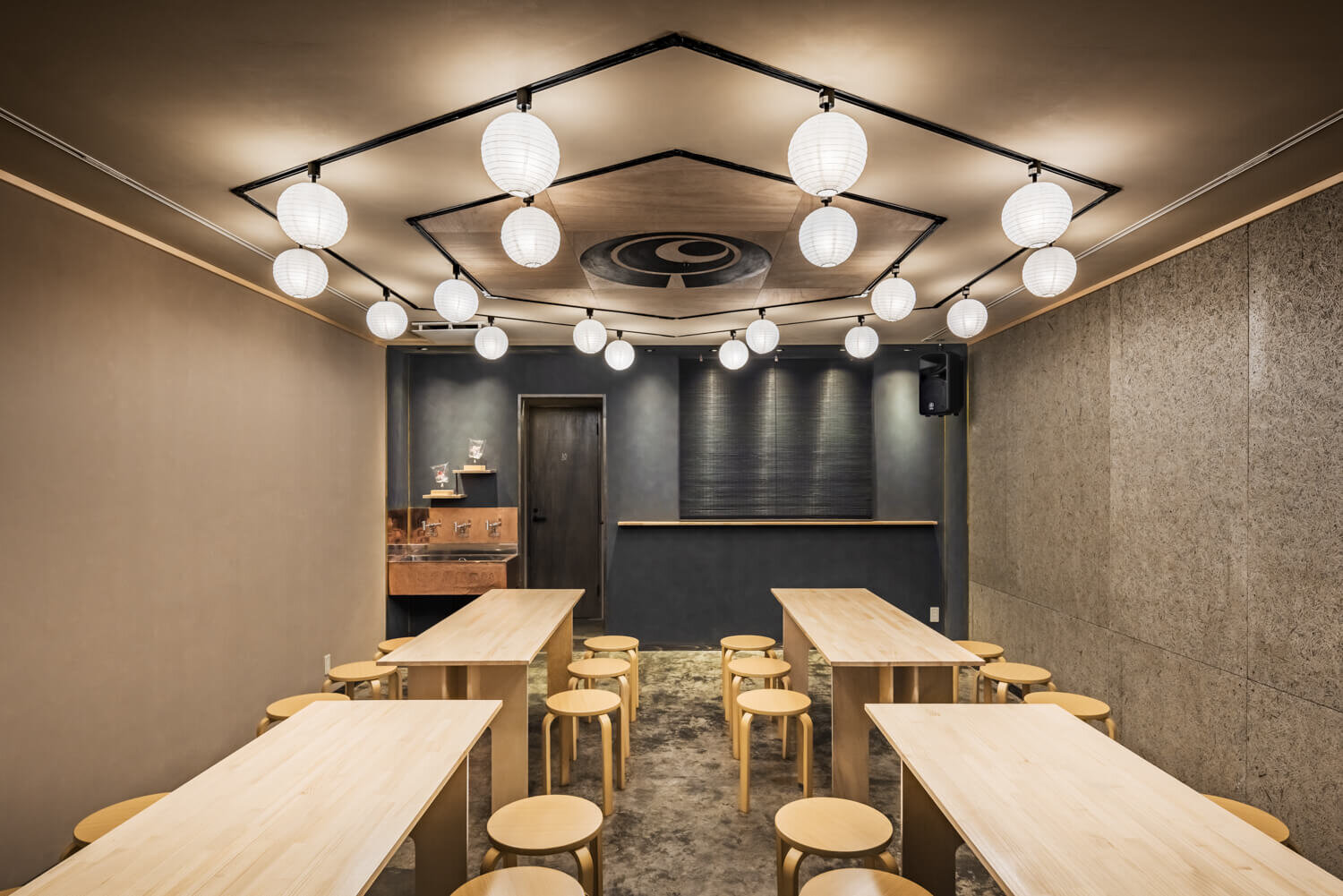




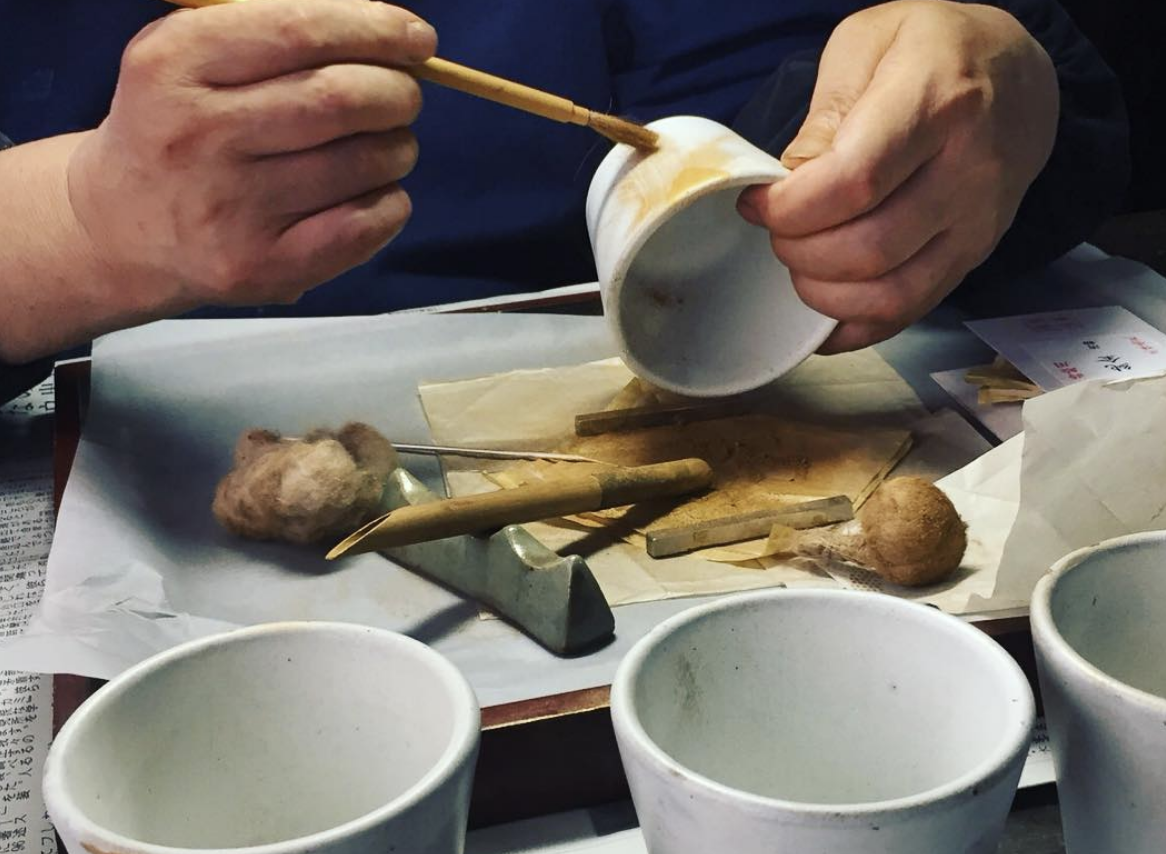


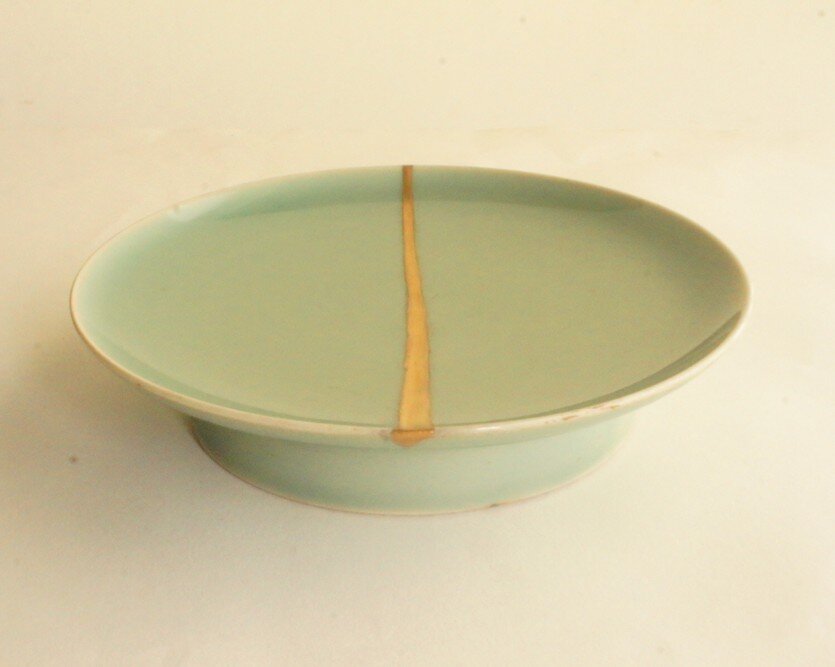





























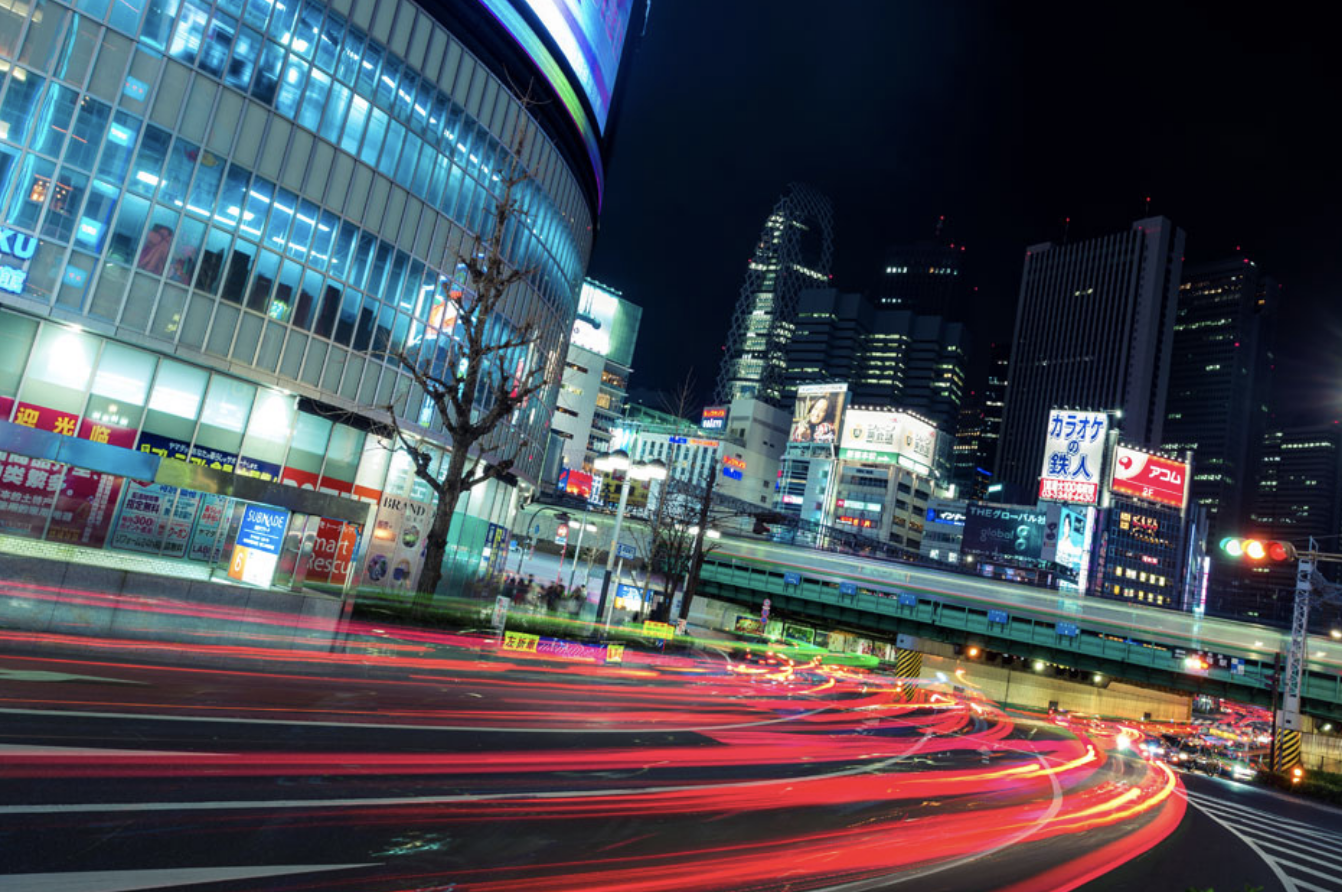





























































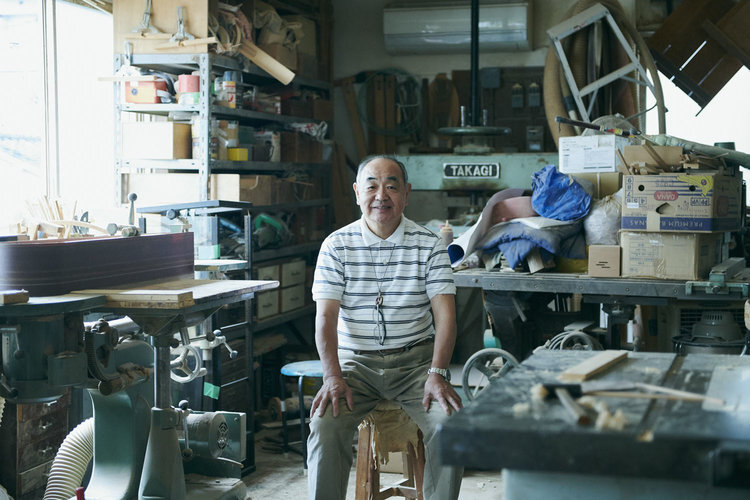



































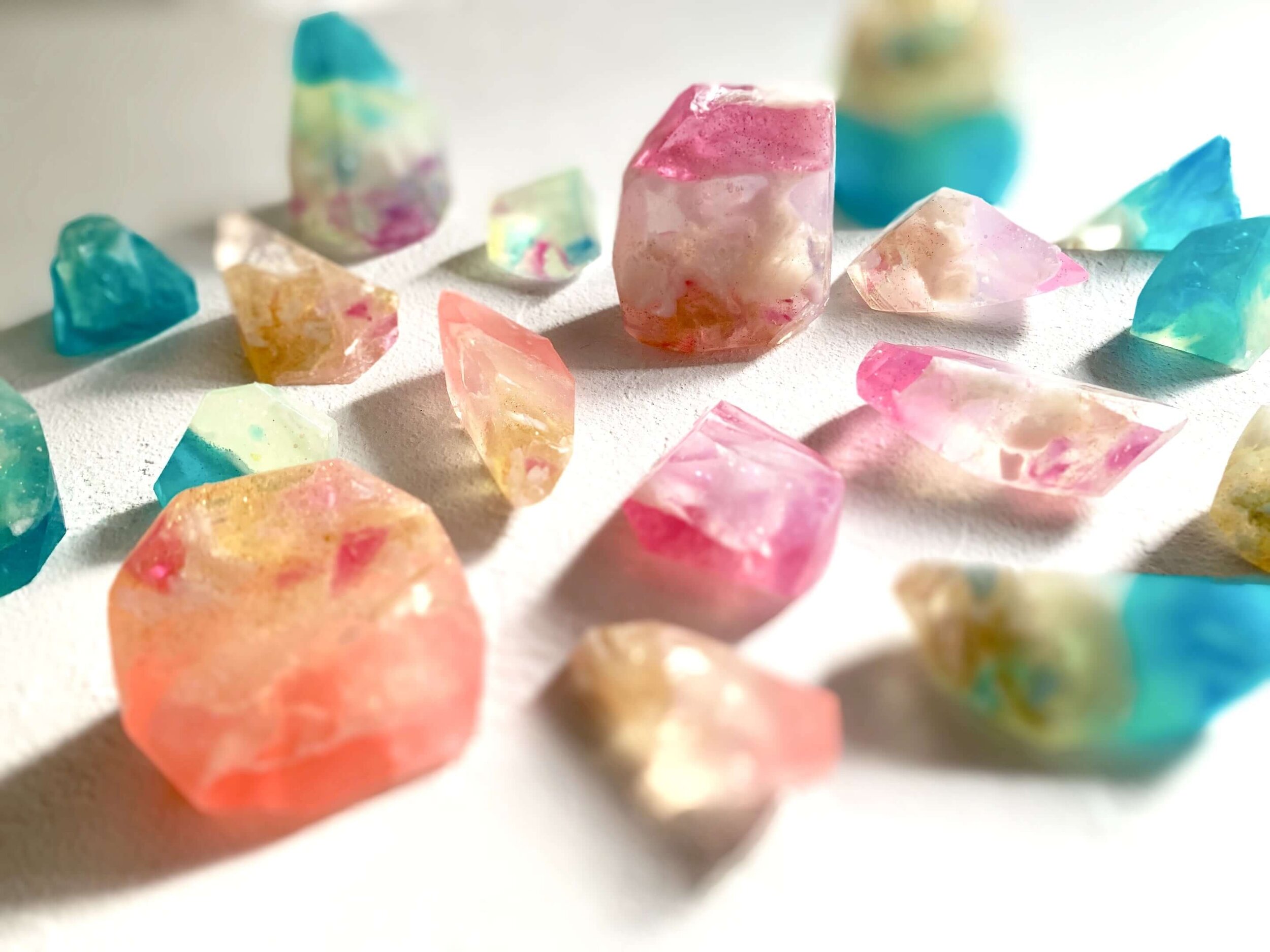

















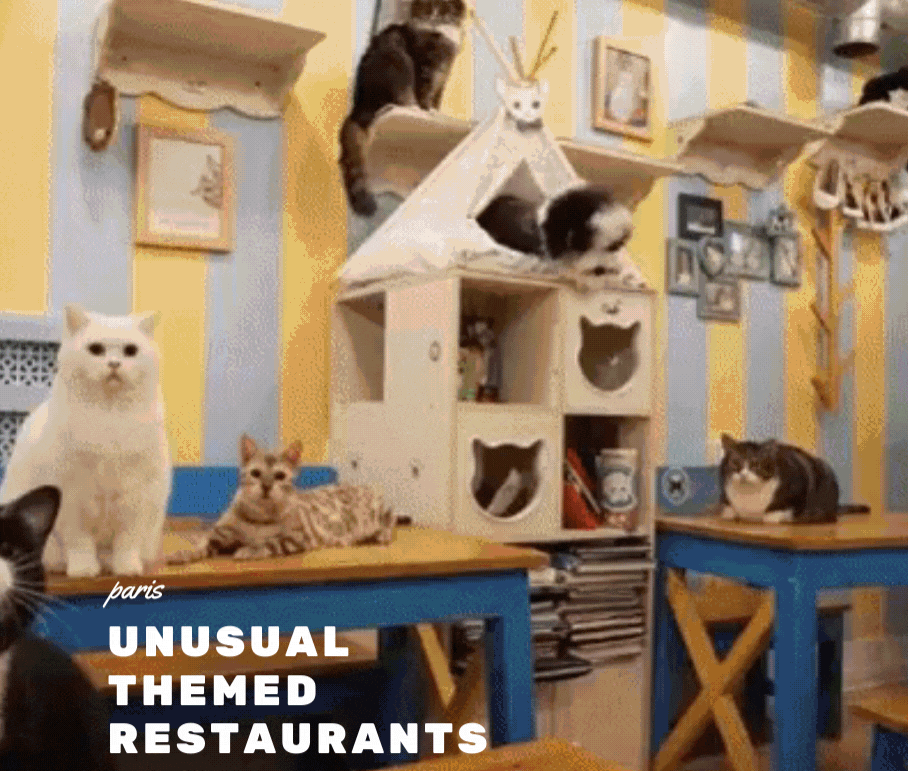



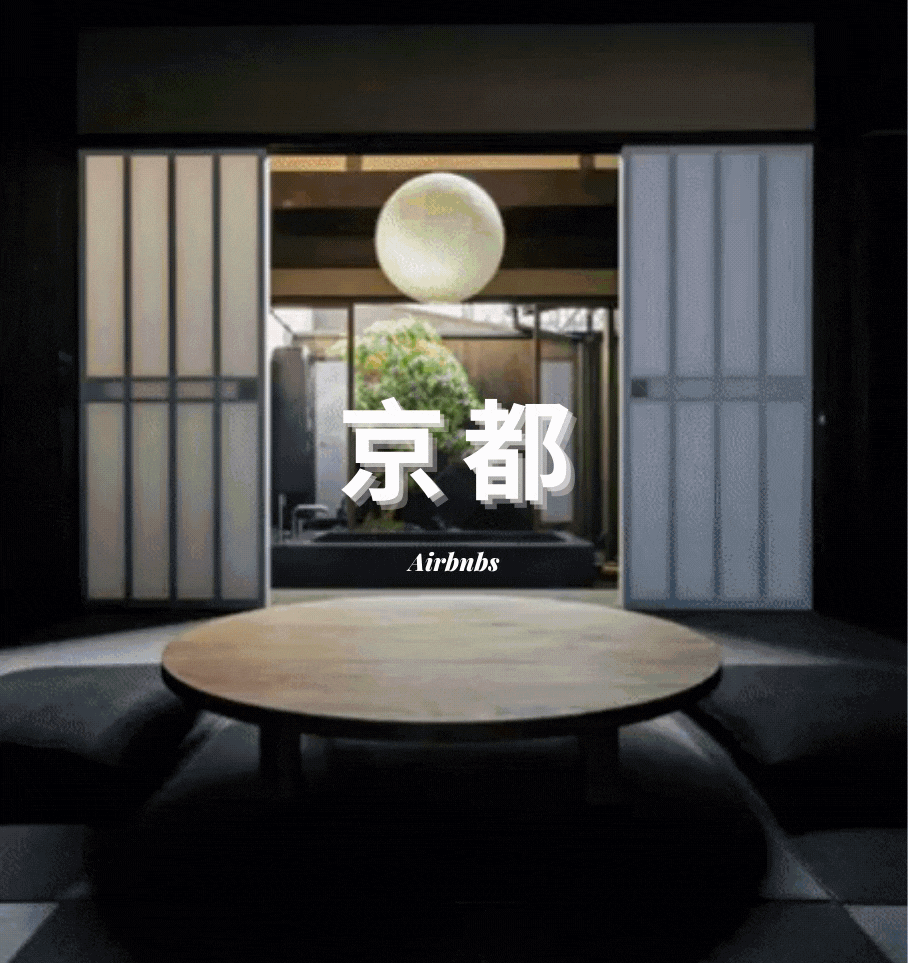

![Top 11 Best Capsule Hotels In Tokyo [For any Type of Traveler]](https://images.squarespace-cdn.com/content/v1/5b23e822f79392038cbd486c/1607781761080-Z8KZ8KF3O9M1N21WJYAT/ezgif-7-b2e79d108d3e.gif)
![The 11 Best Hostels in Taipei, Taiwan [Guide for Any Type of Traveler]](https://images.squarespace-cdn.com/content/v1/5b23e822f79392038cbd486c/1606001074070-4WDP1OQH42K5MIV5JTV7/giphy.gif)
![The 11 Best Hostels in Mexico City [Guide For Any Type of Traveler]](https://images.squarespace-cdn.com/content/v1/5b23e822f79392038cbd486c/1602450107568-EWZ95FL27H44B37S5QTS/Screen+Shot+2020-10-12+at+12.01.24+AM.png)



![Top 22 Things to do and see in Armenia [Nature edition]](https://images.squarespace-cdn.com/content/v1/5b23e822f79392038cbd486c/1636295202429-W42YXDMWR34VYJAPBXV2/IMG_4389.jpeg)


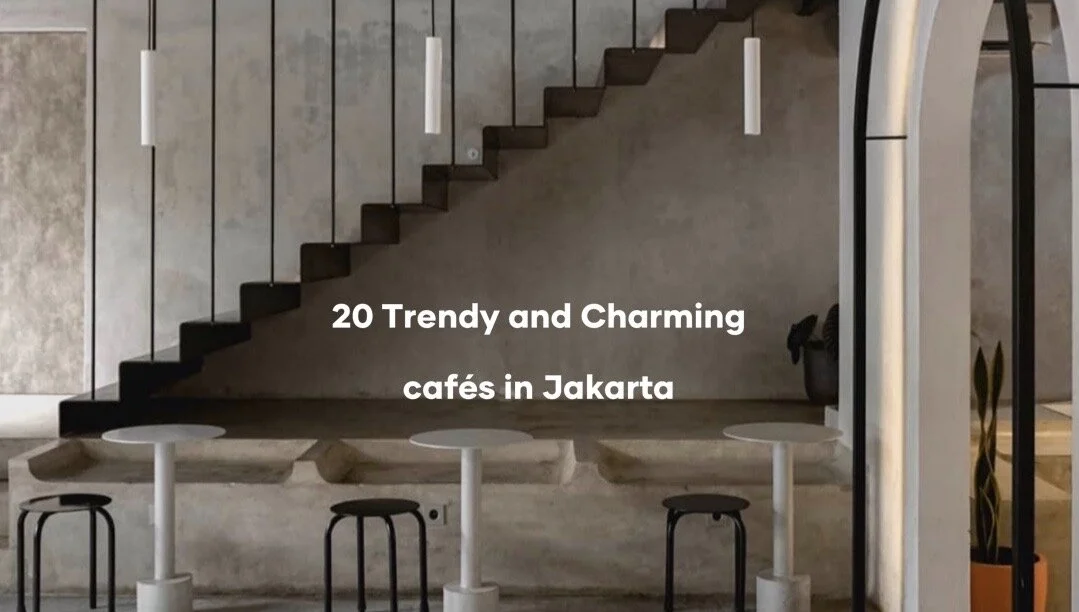


![TOP 7 UNIQUE EXPERIENCES IN CASABLANCA, MOROCCO [THINGS TO DO]](https://images.squarespace-cdn.com/content/v1/5b23e822f79392038cbd486c/1565824429703-7VFZ6K8XI7UNEDMT99ZH/giphy.gif)
![12 UNIQUE EXPERIENCES IN TAIPEI, TAIWAN [THINGS TO DO]](https://images.squarespace-cdn.com/content/v1/5b23e822f79392038cbd486c/1563288145952-2UKQG27QPRUVQJY6SXLI/giphy+%281%29.gif)























